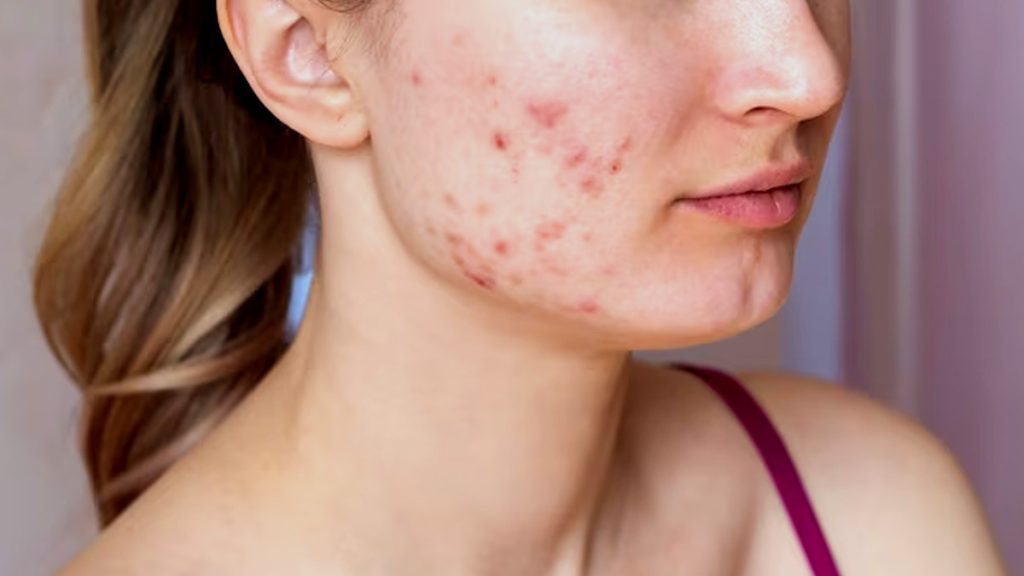
Understanding the link between hormones and acne is crucial for effective management. Hormonal fluctuations play a significant role in the development and exacerbation of acne, affecting individuals at various stages of life. This article delves into the intricate relationship between hormones and breakouts, exploring the underlying mechanisms and offering practical strategies to understand and manage acne effectively. We’ll explore the role of hormones in acne formation, look at lifestyle factors, and discuss potential treatment options. This guide will be broken down into sections discussing hormonal imbalances, diet, stress, and lifestyle, providing concrete examples and potential solutions.
Hormonal Imbalances and Acne
Androgens and Sebum Production
Androgens, primarily testosterone, are male hormones that also exist in women. These hormones stimulate sebaceous glands, leading to increased sebum production. In some individuals, heightened androgen levels can trigger excessive sebum production, creating an environment conducive to acne development. This is particularly relevant during puberty, menstruation, and pregnancy, when hormonal fluctuations are more pronounced. There are various tests a dermatologist can conduct to help identify imbalances.
Estrogen and Acne
While androgens are often the focus, estrogen also plays a role. Fluctuations in estrogen levels can lead to changes in sebum production, which can either decrease or increase the production of oil. This can be influenced by the menstrual cycle, pregnancy, menopause, and even birth control.
Insulin Resistance and Acne
Insulin resistance is a condition where the body doesn’t respond properly to insulin, a hormone that regulates blood sugar. In some cases, insulin resistance can contribute to increased androgen production, further exacerbating acne. Dietary changes and lifestyle adjustments may help manage this issue.
Diet and Acne
The Connection Between Diet and Hormones
Studies have shown a correlation between diet and hormone levels. A diet high in processed foods, refined sugars, and saturated fats can contribute to insulin resistance and inflammation, which can exacerbate acne. Conversely, a balanced diet rich in fruits, vegetables, and whole grains can contribute to overall health and hormonal balance. A balanced diet rich in nutrients, vitamins, and minerals can positively influence the hormonal environment and reduce acne outbreaks.
Specific Foods and Acne
Certain foods, such as dairy products, chocolates, and greasy foods, may trigger acne in susceptible individuals. Avoiding these foods can be a helpful strategy for managing acne outbreaks.
Stress and Acne
The Stress-Hormone Connection
Stress triggers the release of hormones like cortisol, which can impact the production of sebum and lead to acne breakouts. Prolonged or chronic stress can increase the likelihood of experiencing outbreaks. Stress also has a negative impact on sleep, which is an important factor for overall health, including hormone regulation.
Coping Mechanisms
Developing healthy coping mechanisms for stress, such as regular exercise, yoga, meditation, or spending time in nature, can be beneficial in managing acne associated with stress.
Lifestyle Factors and Acne
Sleep and Skin Health
Adequate sleep is crucial for hormone regulation. Lack of sleep can disrupt hormonal balance, potentially contributing to acne. Aiming for 7-9 hours of quality sleep per night is crucial for maintaining healthy skin.
Exercise and Acne Management
Regular exercise can help regulate hormones and improve overall health, potentially reducing acne. Exercise also leads to a healthier lifestyle, which supports better hormonal balance.
Treatment Options
Professional Medical Advice
Consulting a dermatologist is crucial for diagnosis and personalized treatment plans. Dermatologists can assess the specific cause of acne and recommend appropriate therapies, including topical treatments, oral medications, and in some cases, hormonal therapies.
Topical Treatments
Topical treatments, such as retinoids and benzoyl peroxide, can help control acne by reducing inflammation, treating blemishes, and promoting cell turnover.
Oral Medications
In some cases, oral medications, such as antibiotics and hormonal medications, may be prescribed to address severe or persistent acne.
Additional Considerations
The Role of Genetics
Genetics also play a significant role in acne susceptibility. Individuals with a family history of acne may be more prone to breakouts.
Environmental Factors
Certain environmental factors can contribute to acne, such as pollution and exposure to harsh chemicals. Protecting your skin from these factors might reduce acne outbreaks.
The Importance of Personalized Care
Seeking Expert Guidance
Remember that this article provides general information. For personalized advice, always consult a dermatologist or healthcare professional for a diagnosis and treatment plan tailored to your specific needs.
The Long Term Impact of Acne
Potential for Scars
In severe cases, acne can lead to scarring. Preventing acne from progressing to severe stages is crucial to minimize the risk of scarring.
Frequently Asked Questions
What is the primary connection between hormones and acne?
Hormonal fluctuations, particularly androgen levels, can significantly influence sebum production, creating an environment conducive to acne. The interplay between hormones and skin cells plays a pivotal role in the development of acne.
How can I manage acne linked to hormonal imbalances?
Managing acne linked to hormonal imbalances requires a multifaceted approach. Consulting a dermatologist is essential for an accurate diagnosis. A healthy diet, stress management techniques, adequate sleep, and regular exercise can all contribute to improved hormonal balance. Topical treatments and, in some cases, oral medications can help manage acne breakouts effectively.
In conclusion, the link between hormones and acne is complex and multifaceted. Understanding the hormonal fluctuations throughout different life stages, recognizing the impact of diet, lifestyle, and stress, and seeking professional medical advice are crucial steps toward effectively managing acne. Remember, this information is for educational purposes only, and consulting a dermatologist is always recommended. To learn more about acne treatment options, schedule a consultation with a dermatologist near you.